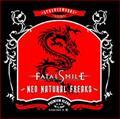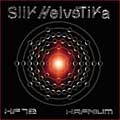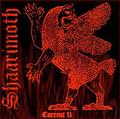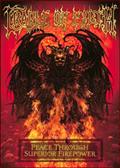PHENIX (FRA) - Immortal Flame (2008)
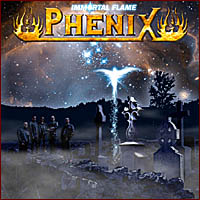
Label : Brennus Music / Socadisc
Sortie du Scud : 2008
Pays : France
Genre : Power Metal
Type : Album
Playtime : 15 Titres - 59 Mins
Tous les soirs, au moment de donner le bain à mon petit bonhomme de presque 3 ans, nous décidons ensemble quel disque nous allons écouter dans la salle d’eau. Ce petit gars têtu qui a pris notre Johnny national en adoration ne jure que par « Allumer Le Feu » (remarque, ça pétarade pas mal …), ou de temps en temps le « Hard Rock Hallelujah » de LORDI sur lequel il a bien accroché. Tout ça pour vous dire que lui faire changer d’avis et surtout lui faire accepter d’écouter un skeud Metal (pour une future chronique …) tient souvent du miracle.
Alors ce soir, quand je lui ai montré le CD et la pochette d’Immortal Flame, et qu’il a bien voulu que j’insère la galette dans le petit poste, j’attendais beaucoup de PHENIX. Et mon petit chroniqueur en herbe aussi. Alors survinrent les premières notes du titre éponyme, bien amené, prenant aux tripes. Le genre d’intro qui vous fait penser : « oh putain cet album va tout déchirer ». Et là, patatra !!!! Tout s’écroula …
Comme j’avais mis un peu de son (comprendre « le volume un peu fort »), nous avons eu la mauvaise surprise d’entendre une voix mixée deux fois plus fort que le reste du groupe. Comme une démo à peine travaillée en studio … Impossible dans ce cas de savoir si Bertrand Gramond assure ou non. A force de trop l’entendre, on finit par ne plus écouter.
Inquiet et déjà déçu, j’ai quand même tenté de m’imprégner des paroles que mon fils ne comprend pas, heureusement d’ailleurs : « live free forever », « unite as one and sing together » … Le constat est terrible : si Bernard Minet et Jean-François Porry s’étaient mis en tête de traduire en Anglais les paroles de Bioman, PHENIX les auraient pulvérisés, c’est sûr !!! Les textes des titres suivants s’avèrent certes moins naïfs, on esquive de peu l’Anglais franchouillard où les « where is Bryan ? » côtoient les « my taylor is rich ».
Mais histoire d’enfoncer le clou, c’est la bande son qui a pêché à son tour. Puisant son inspiration parmi les illustres groupes des années 70 et surtout 80, PHENIX n’en a pas recueilli que le meilleur. Immortal Flame paraît carrément téléphoné, avec des riffs prévisibles, des lignes de chant poussives, des mélodies que l’on ne retient pas. Je ne peux pourtant pas m’empêcher de penser que PHENIX doit pas mal cartonner sur scène. D’où un paradoxe évident et une énorme frustration.
Le contraste avec les REVENGE et autres DYSLEXIA, qui ont su évoluer avec le temps, n’a jamais autant été prononcé. Pourtant les cinq musiciens de Montbéliard ne sont plus des débutants, comme en attestent les Sacred Fire (2000) et Wings Of Fire (2004). Le verdict de mon fils, alors perturbé dans sa bataille navale entre le petit canard jaune et le petit morse rouge, fut dans tous les cas sans appel, bien qu’un peu dur : « papa, c’est quoi ça ? C’est nuuul … ».
Histoire d’entendre un bon titre Heavy, aux accords étouffés et au refrain imparable, on s’est remis « Allumer Le Feu ». Ce feu là n’est peut-être pas « immortel », mais il fait taper du pied. Et ce soir là, c’était déjà une bonne chose.
Ajouté : Mardi 05 Août 2008
Chroniqueur : NicoTheSpur
Score :  
Lien en relation: Phenix Website
Hits: 16343
|





